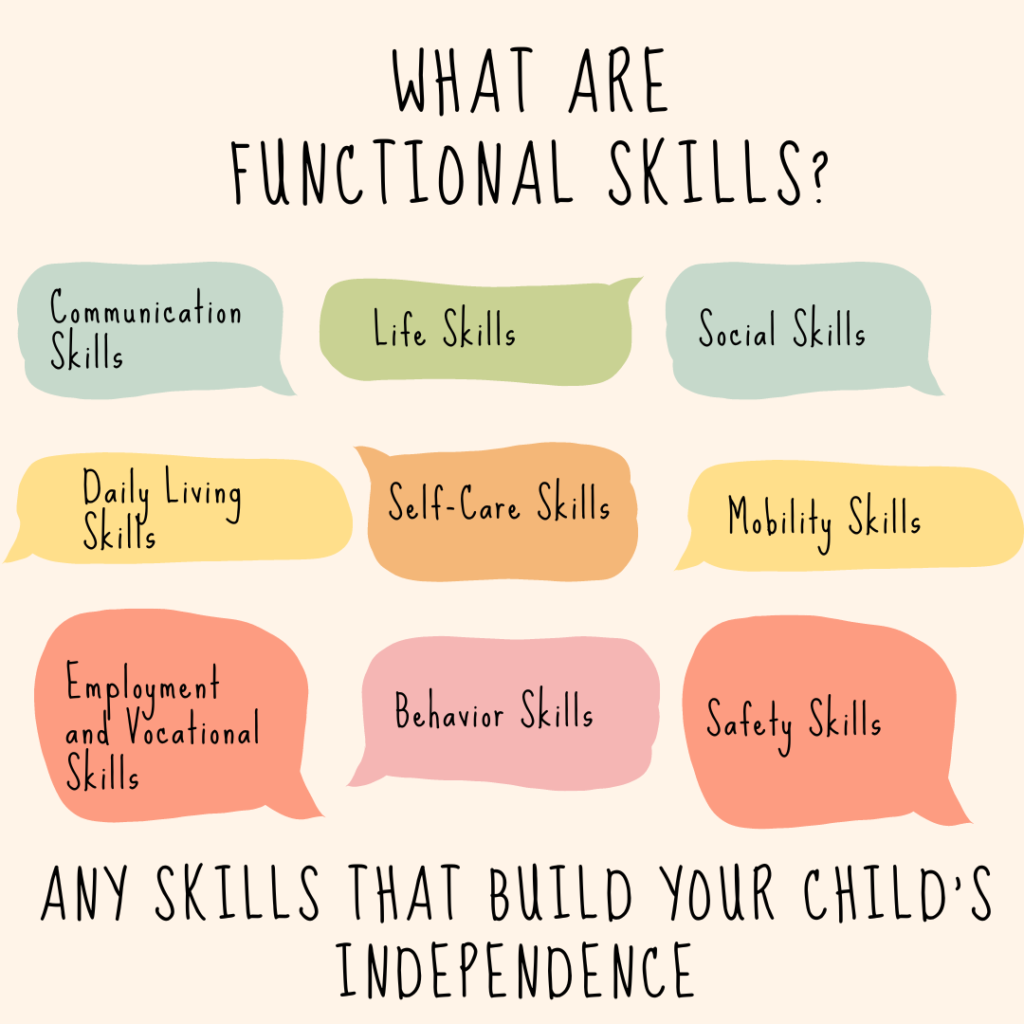 Functional skills are essential abilities that students need to become self-reliance and live independently. These skills encompass a wise spectrum, ranging from basic to intricate, but all share a common purpose: preparing your child for life beyond their school years.
Functional skills are essential abilities that students need to become self-reliance and live independently. These skills encompass a wise spectrum, ranging from basic to intricate, but all share a common purpose: preparing your child for life beyond their school years.
When including functional skills into an Individualized Education Program (IEP), it’s crucial to understand the various skill categories, when it is appropriate to include them, and how they can benefit your child. Functional academic skills can also be included in an IEP. Below are several skills that aid in fostering independence and can be included in an IEP, when appropriate:
Communication Skills
Children need to express desires, ideas, concerns, and emotions effectively. Communication skills are required for a variety of purposes, from voicing concerns, understanding detailed information, and asking for assistance to negotiating salary or discussing budgets. Practicing inside the classroom is vital to supporting communication elsewhere.
Daily Living Skills
These activities can be integrated into the IEP and include daily tasks such as meal preparation, budgeting, and time management, among other skills.
Life Skills
Similar to daily living skills, life skills focus on routine tasks. These skills are further nurtured through real-life experiences beyond the classroom, such as taking public transportation or shopping for groceries.
Self-Care Skills
These skills can overlap with life and daily living skills, but also include basic tasks like hygiene, dressing, and eating, as well as understanding mental health care. Teaching your child to manage stress and anxiety is as vital to their health as personal hygiene.
Social Skills
Teaching social interaction can be difficult. From respecting personal space to active listening, practicing in real-world scenarios boosts social skills. These skills should take into consideration your child’s disability and level of comfort to encourage growth.
Safety Skills
Teaching safety measures is crucial for preventing harm. These skills include everything from turning off ovens to wearing seatbelts and can be general or specific to certain periods or stages.
Behavior Skills
These skills influence how students interact with themselves and others. They cover interpersonal behavior, self-regulation, task-related conduct, and the ability to navigate situations appropriately.
Mobility Skills
These skills are not just about movement, but help students learn to navigate physical spaces, public transportation, and understanding train/bus schedules, as appropriate.
Employment and Vocational Skills
Though specific skills vary, students should be helped to understand how to apply for jobs, behave in interviews, and navigate the post-offer process. Specialized training can also be added and may include apprenticeships or trade schools to enhance vocational skills.
Functional skills should match each student’s developmental stage, guiding them towards independence. Ensuring these skills are a part of your student’s IEP allows the practice needed for success.
